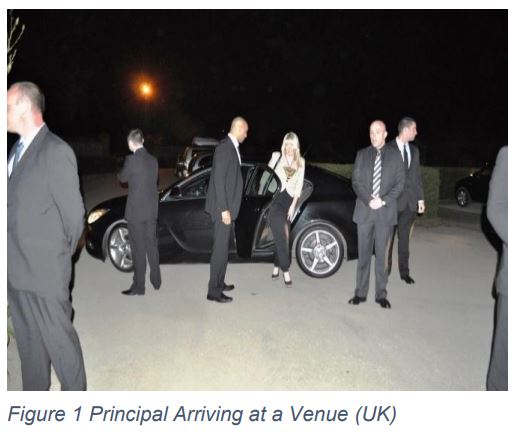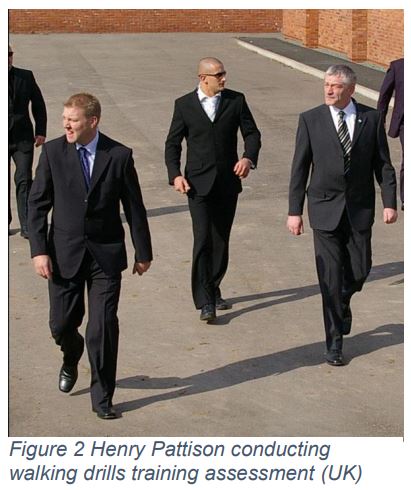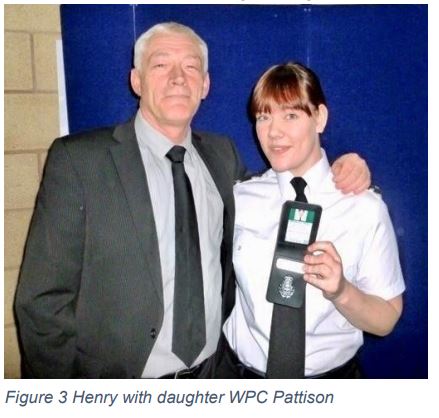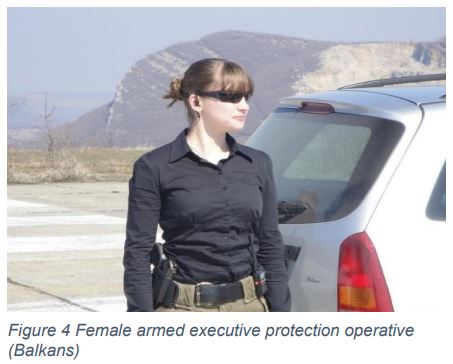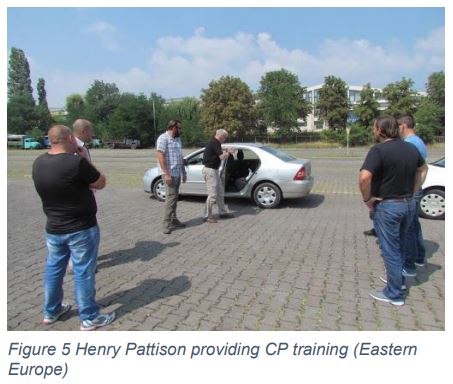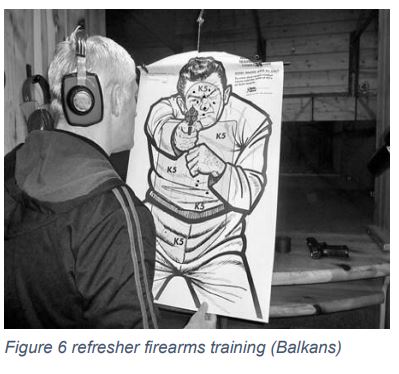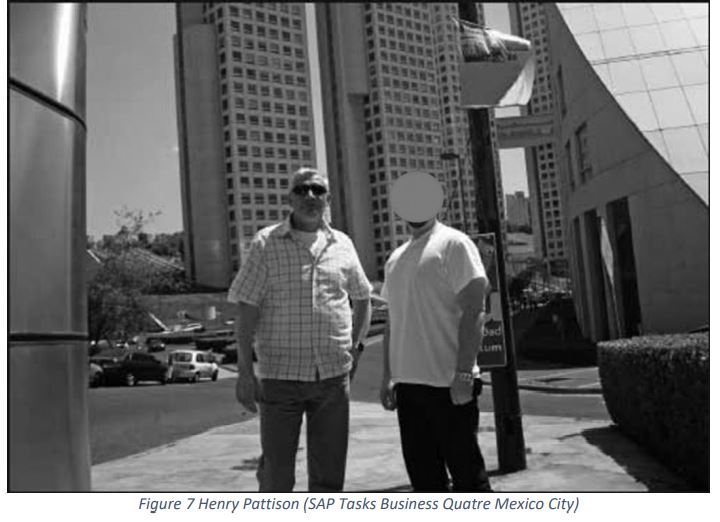Close Protection Training and Working. Questions and Answers
Tuesday, 26th October 2021
I am frequently bombarded with queries from students and those interested in pursuing a career in CP. The most common questions I've been asked, along with my responses, are shown here.
Close Protection Training and Working. Questions and Answers
After a 24-year stint in the military, I transitioned to private security in 2003 and have remained there since. I've primarily worked in the fields of surveillance and close protection. I also teach and assess these topics, as well as a variety of other security-related subjects including firearms. I am a certified tutor/assessor as well as a front-line licenced close protection operative with extensive experience working in a variety of locations and threat levels both within the UK and overseas.
In my job as a teacher, I am frequently bombarded with queries from students and those interested in pursuing a career in CP. The most common questions I've been asked, along with my responses, are shown here. Please keep in mind, my answers are based on my knowledge, and experience; no one else’s.
Q. What is Close Protection?
A. Close Protection is the provision of specialist security by individuals who provide protection to any persons or groups from known or unknown threats. Close Protection is a specialist service carried out by trained and licenced operatives known as ‘close protection operatives (CPO’s). Please keep in mind that they are operatives and not officers. An officer is a person of a certain grade in some honorary order, commissioned or enrolled by Royalty or for public service such as a police officer. Notable people who employ CPOs are the British Royal family or the Prime ministers of Great Briton and Northern Ireland. However, their CPOs are police officers of the Metropolitan Police Service and come under the command of Police Special Operations. Royalty and Specialist Protection protect the Royal family and, Parliamentary and Diplomatic Protection (PaDP) take care of government officials such as the Prime Minister. However, these Police special operations units are usually armed whilst they carry out their duties. Private security CPOs are not armed (in the UK). Private security CPOs are licenced activities within the UK. The Security Industry Authority (SIA) are the statutory organisation responsible for regulating the private security industry in the UK.
Q. Who are CPOs?
A. CPOs keep principals (the person afforded protection) safe from unwanted attention or physical harm. CPOs are responsible for conducting security surveys, assessments, and risk assessments. CPOs would also most likely be involved in providing discreet surveillance and anti-surveillance tasks. Their work would also include:
• Protecting their principal from threats of physical violence/arm
• Carrying out security surveys of venues such as hotels, restaurants, and theatres before a principal’s arrival
• Accompanying the principal on business and social trips Figure 1 Principal Arriving at a Venue (UK)
• Providing secure transport for the principal to and from venues, home, and place of work
• Provide security for the principal whilst at home (this is called residential security).
A threat to a principal could come from a wide range of situations such as terrorists, political activists, religious activists, stalkers, over-zealous fans kidnap and assassination.
Q. There is a rumour that CPOs are all former armed forces or police personnel. Is this true?
A. This rumour is true. Yes, a lot of former armed forces and police personnel do provide close protection. The main reasons why are because they have always stayed involved with providing a service of protection and, their understandable next step moving forward into a world of civilian life is to continue with a career in which they already know and are good at it. However, I know many CPOs who started a career in close protection are not former armed forces or police. Usually, these CPOs have a background of working as door supervisors or security guards. However, some CPOs have come from a position of having no security-related background and it’s been their interest in the career of close protection which has driven them to enquire about a potential career in close protection and have attended training courses to see if their curiosity is still fuelled to pursue a close protection career. In my experience, I have realised that CPOs without a security, armed forces or police background work well as CPOs with celebrities, music artists and movie stars. I say this because the CPOs with a military or policing background tend to be a bit too rigid and stand fast in their provisions of close protection. Not that there is anything wrong with this, however, when it comes to celebrities, pop stars and the like, they tend to feel uncomfortable in this type of security environment and it could lead to certain individual CPOs being laid off or replaced. I always find that CPOs with military and policing background are highly suited to protect principals who are business executive types, politicians and in some cases foreign Royalty.
Q. Can females become CPOs?
A. This is a good question and I have been asked this question many times. My answer is ‘yes’. Female CPOs are becoming more in-demand these days specially by female celebrities and VIPs, who necessitate softer ‘feminine skills’ such as more compassion, uncomplicatedness. Female CPOs are proven to be an asset in managing conflicts, with less chances that confrontations will turn violent. Some government ministers, celebrities and Royalty opted for female CPOs. I know two female CPOs (no names mentioned) without a military or policing background who are probably some of the very best iclose protection and have gone on to lead very successful careers and always on demand.
Q. What about close protection training; is it difficult, and where do I go for training and qualification?
A. Before the involvement of the SIA and licencing in 2006. Close protection training courses usually would be about one month in duration. Training providers at that time would include in their training programme subjects such as fitness training, unarmed combat, offensive-defensive driving, and firearms training. However, the SIA stressed that all security personnel must provide evidence of knowledge and practical ability to carry out the duties of a CPO, emphasising that assessment criteria be set at the "very basic minimum level." Therefore, close protection training courses became two-week courses instead of four weeks since the assessment criteria did not include fitness training, unarmed combat, offensive and defensive driving, and firearms. The truth is the SIA close protection programme is not difficult. The real difficulty is finding the right training provider. The first place to look for an approved close protection training provider is to see who the SIA appointed awarding bodies are. The awarding bodies appointed by the SIA for security qualifications are:
Trident Manor Training Academy are listed on the SIA website for approved training providers.
Q. Is there funding available to help pay for training and licencing?
A. Yes, there is funding available for close protection training and, in some cases, to help you pay for the SIA licence. There is funding available for both armed forces personnel and civilians. If you are former armed forces or still serving and going through resettlement, you should be eligible for ELCAS. ELCAS could pay up to 80% of your qualification costs depending on the number of years of your service. Trident Manor is an ELCAS approved training provider (11151). If you are unemployed, you can speak with Jobcentre-Plus. Explain to them your situation and what your intentions are. You will find they are more than willing to help you achieve the career you want and help with funding for training and qualifications to get you there. Initially, you would need funding to help pay for your close protection training, a level 3 first aid at work (3-day course), and the SIA licence (£190.00). This will get you started.
Q. What is a close protection operative salary?
A. This is a difficult question to answer because the nature of working as a close protection operative comes with inherent factors such as:
Q. What happens when I have completed the training and I have my qualification and SIA licence?
A. Don’t fall into the usual trap of thinking just because you’re a qualified and licenced CPO that the work is just going to drop at your feet, because I tell you now, "it won’t". What you need to do, is imagine you have just passed your driving test and now you have your Green P sticker on. What I am getting at is you need to build up your experience and confidence. A CPO never stops learning and never stops training. More learning and training helps build a bigger enhanced network of security professionals and colleagues who can help you find the work. Enhancing your skills and knowledge and networking is key in close protection if you want the work and your serious about it.
Q. Are CPO’s employed or self-employed?
A. A full time employed CPO (in the UK) is rare, although they do exist. The vast majority of CPO’s are self-employed or classed as a sole-trader and, you would work on subcontracted assignments, usually under a subcontract agreement. You will need to register yourself as self-employed with HMRC and, you should be issued a unique self-employed reference number (URN) for tax purposes.
As a subcontractor, you are your business, which means you should conduct yourself and activities like a businessperson. In other words, you will be your walking and talking advertisement.
You may want to consider getting yourself some insurance. For example, professional indemnity insurance and personal accident insurance are always a plus. Some clients specifically ask if you have your insurances and check your employment status or ask for your URN.
Figure 6 refresher firearms training (Balkans) Start networking on LinkedIn and follow the security-professional bodies. Please avoid putting pictures of yourself on social media, showing your muscles, or running around with a machine gun. It may appear cool, but your potential clients may not think it’s a good idea. After all, they will check on social media. Keeping contact with your colleagues from training courses is always a good thing. If they get the work, they could also name drop you.
Other questions potential clients looking to subcontract a CPO would ask about your vetting status, so you should think about getting yourself a Disclosure and Barring Service (DBS) check. However, be aware that part of your SIA licence application process also involves your DBS check. You will receive a DBS certificate about a week before your SIA licence arrives in the post. Keep this certificate and plan on having it renewed yearly.
Q. What if I can’t find any close protection work at all?
A. Do not give up! Keep on trying, keep looking, keep networking. However, your CP licence will also allow you to work as a door supervisor or a security officer (three hats under one licence). I have just seen an advertisement for CPOs for the COP 26 Climate conference saying, "personnel with door supervisor licence would also be accepted". Part of the CP training course syllabus covers the subject of surveillance. Some trainees find this subject interesting and look at getting involved or specialised in this line of work. I know a lot of former CP students who are also qualified, professional investigators. They flip from the CP role to the investigator role, as and when the work appears or not. Others also go down the route of specialising in Technical Surveillance Counter Measures (TSCM) or bug sweeping, in other words. It is all worth keeping this in mind. There is another option if you can't find work in the UK, you could look overseas. To be honest, the real CP work is outside the UK but not necessarily in hostile environments such as Iraq. There is lots of CP work if you look within the Balkan regions, USA (the Americans love Brit CPO's), Canada is also a great place to work CP especially for the energy and corporate sectors.
Q. Is there any resources available which could help me with training or furthering my knowledge of CP?
A. Yes, there is lots of information out there that is useful for CPO’s or anyone interested in CP training. Some relevant literature for you to keep in mind or be on the lookout for the following books:
Final tips and advice:
